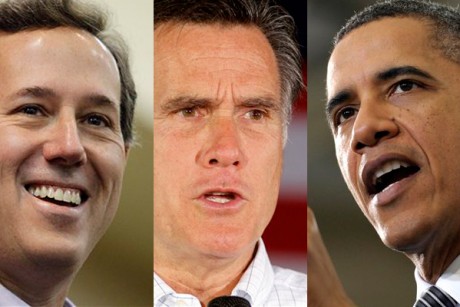Most of the time, a political convention combines the best of public relations strategy, messaging, marketing, and theater. But good or bad, there are always learnings that PR pros and our clients can take to any public speaking opportunity. Here are some from my convention-watching over the past two weeks.
Match the room. Politicians and their surrogates often face the dual-audience dilemma: whether to address the television viewing audience or the convention hall itself. But most of us can tailor our voice, gestures, and energy to the physical environment and a single group. For a smaller venue, a natural speaking style works. But a large auditorium calls for bigger, bolder gestures and vocal inflections, and a higher-than-normal energy level.
Know the material. Overreliance on a teleprompter is a key reason why many speakers fall short. If you’re not comfortable with the material, or feel you need to read every last line, the delivery can be monotonous and wooden. The best speakers memorize portions of the speech, and/or they learn to read ahead so that eye contact, head movement, and vocal inflection can be more natural.
Tell a story. Everyone knows this, but political speakers tend to do it best. A single anecdote is more powerful than a policy download. One story beats statistics. The mom whose daughter needed heart surgery, Governor Susana Martinez’s anecdote about her GOP awakening, and Tammy Duckworth’s inspiring story were just a few of the standouts.
Show your feelings. The goal of any speech is to connect with the audience. It’s often effective to share a personal anecdote and show real emotion, as long as it’s appropriate and not unchecked. Mitt Romney’s evocation of his father and President Obama’s tribute to his wife were both well calibrated. Joe Biden’s emotional pauses at the end of his speech were a bit distracting, because he seemed to have teleprompter difficulties and I initially wondered if he’d blanked out.
Have a back-up. “Always pack your own parachute” is how one speaker put it when a letter she planned to read wasn’t placed at the podium as planned, and she was able to pull another copy out of her pocket. Errors happen. Teleprompters go down. Does anyone remember President Bill Clinton’s SOTU address in 1994? Another speech was loaded into the teleprompter by mistake, but the Improviser-in-Chief famously didn’t miss a beat, turning in a perfect rendition until the error was fixed. Of course, he abandoned the prepared text again at the DNC in Charlotte, but that was purposeful. The point is most of us wouldn’t have been able to wing it. Check, then check again. Redundancy rules.
Connect to your content. Jimmy Carter used to smile when delivering serious news. At the RNC, Nikki Haley looked cheerful while blasting Obama’s policies. This can undermine the message. The best speakers, including Condoleezza Rice and Michelle Obama, were perfectly in sync with their words in terms of facial expression, voice, and body language.
Don’t distract. This is where preparation and videotaped rehearsals come in. If you were on Twitter during the speeches, you may have seen tweets about Paul Ryan’s frequent throat-clearing or Ted Strickland’s shouting, each of which arguably distracted from their content. Also odd was the swirly blue background in Tampa – I found it vertigo-inducing.
Build it. And both parties did! A truly great speech has phases, – maybe a warm, humorous intro, followed by a faster-paced and punchy middle, a more “intimate” sharing, and a roaring finale. Several speakers, including Ann Romney, used their voice to powerful effect, lowering it for personal reflections, then raising it to punctuate an important point. Deval Patrick’s fire-breather rose to a climax worthy of a Baptist Sunday sermon. The effective pacing and vocal inflections made these some of the best at either convention.
Prepare for the unexpected. Public speakers need to be prepared for physical discomfort, nerves, delays, interruptions, equipment failure, spontaneous applause, even hecklers at times. As for Clint Eastwood’s now-famous 12 minutes, it was unusual in that the iconic star was apparently allowed a free hand. Giving up control is a huge risk to be avoided at all costs. I’d call it a distraction at best (at Marco Rubio’s and even Romney’s expense) but the empty chair did get buzz. Whether it was good, bad, or ugly, however, probably depends on who was watching.



